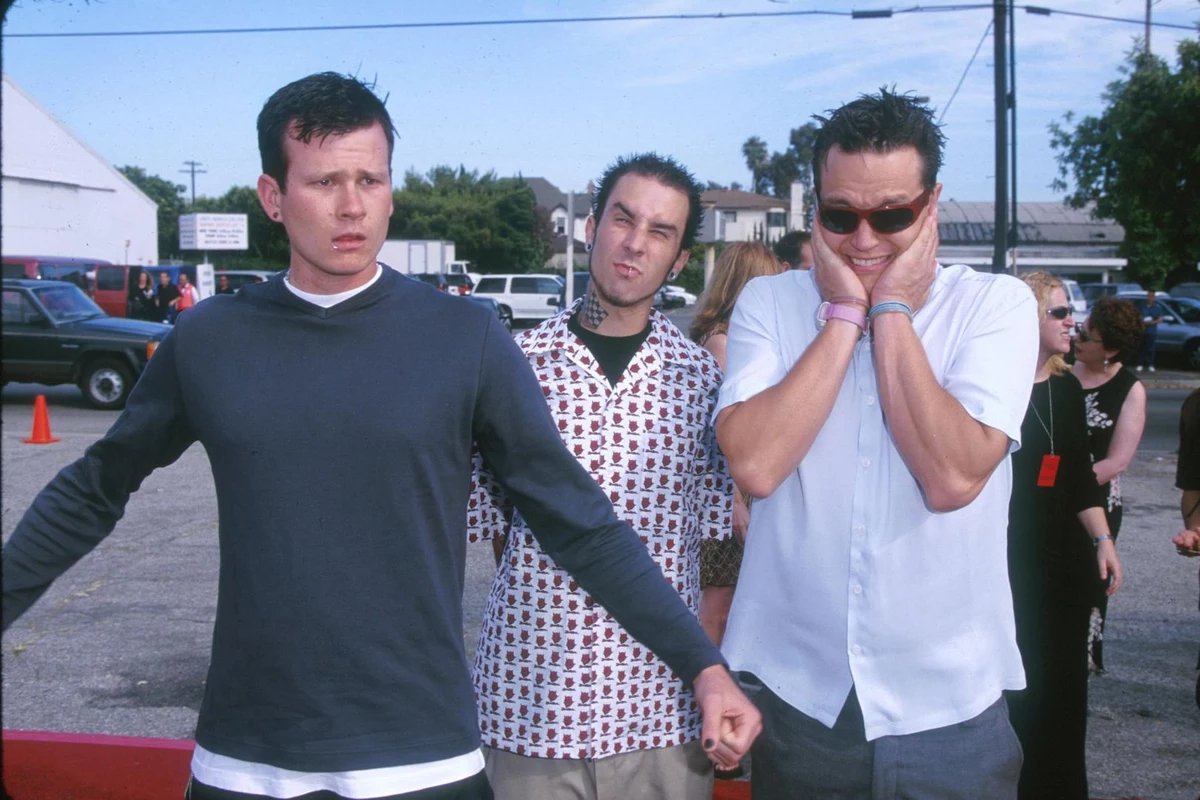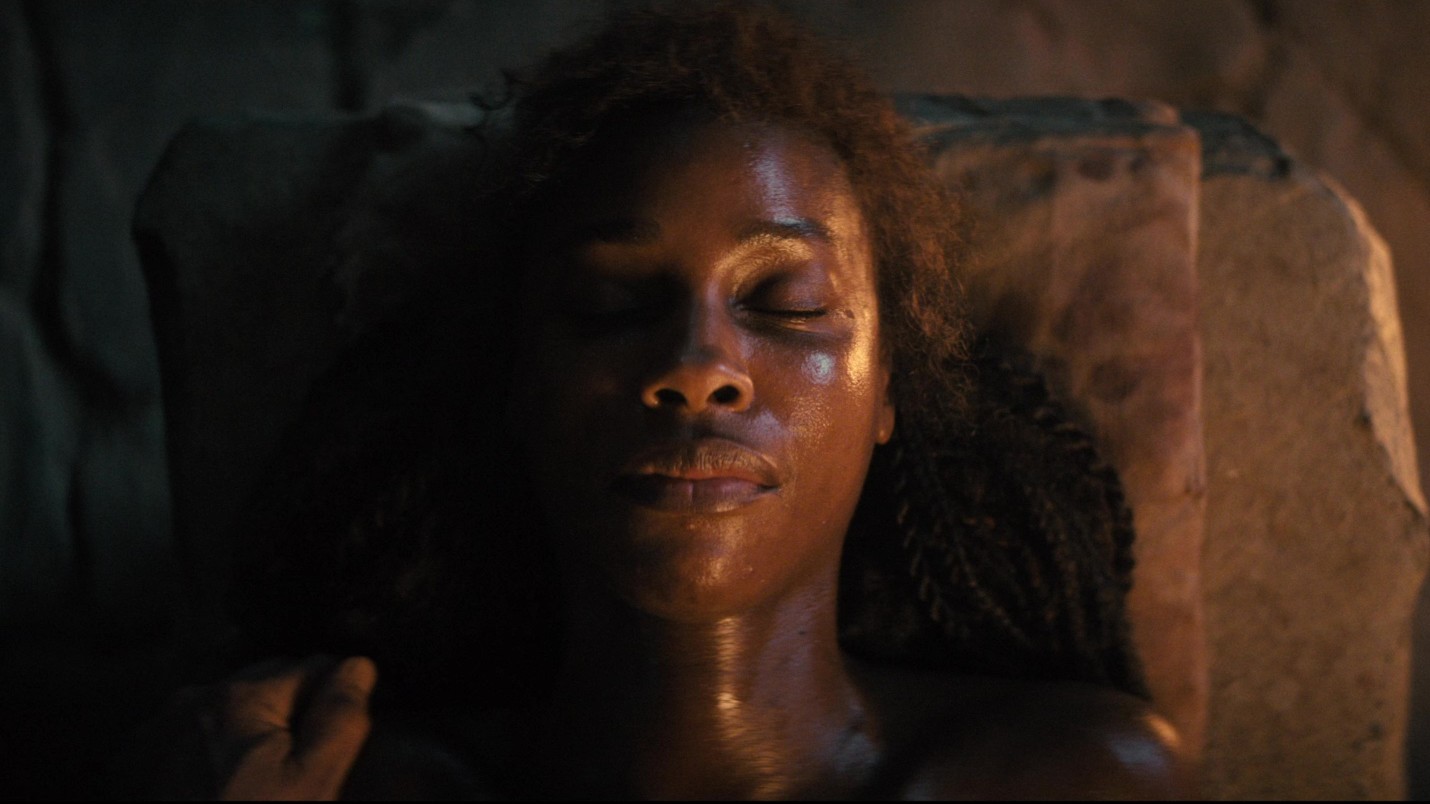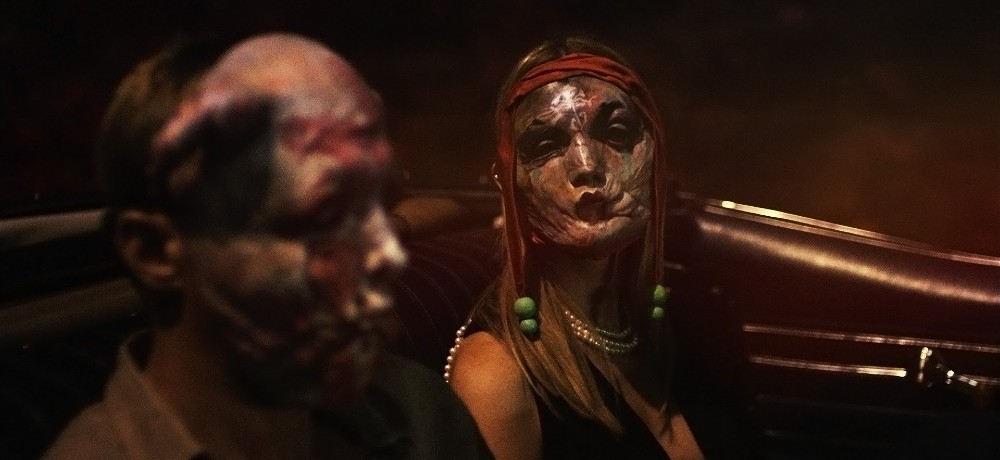
For this writer, one of my favorite filmmakers working today is Brandon Cronenberg. Sure, comparisons to his father’s creative output are always going to happen (and their emboldened nature as storytellers is certainly a connective tissue between the two), but with just three features under his proverbial belt, Brandon has demonstrated time and time again that he’s blazing a path unlike anyone else—past or present—including his own dad. And with Infinity Pool, Cronenberg has crafted one of the most intoxicatingly perverse films of the last decade, a cinematic achievement that is shockingly audacious (still wondering how this managed to get an R rating, to be honest), completely unhinged, and excessively violent, and I could not have loved it more.
At the start of Infinity Pool, we are introduced to James Foster (Alexander Skarsgård) and his wife, Em (Cleopatra Coleman), while they are on vacation at a hoity-toity private resort on the fictional island of Li Tolqa. Something of a failed writer, James is hoping that this trip will help motivate him to get started on his next book, but inspiration eludes him until he crosses paths with the enchanting Gabi (Mia Goth) and her extremely “friendly” husband Alban (Jalil Lespert), who are fans of Foster’s work. The couples decide to take a day trip away from the resort (a big no-no in Li Tolqa) and as they are driving back, James accidentally hits an island resident and flees the scene at the insistence of both Gabi and Alban. The next morning, James and Em are both taken into custody by local authorities, who charge the writer with murder and leaving the scene of a crime. His punishment? Death. There is no judicial system in Li Tolqa, just swift consequences. But James can escape certain death if he agrees to pay a hefty fee to have a clone made that will be crafted explicitly for the purpose of taking the punishment on his behalf.
After agreeing to have a double made, James suddenly finds himself exploring a life without consequences—after all, if he screws up on Li Tolqa, there’s always someone else who will pay for his sins, which causes the writer to fall down a dangerous and debaucherous rabbit hole courtesy of his new pals Gabi and Alban (and a few more of their elitist buddies as well).
While Infinity Pool is a wildly evocative visual experience (more on that soon), it’s the themes at the center of Cronenberg’s story that really resonated with me. Of course, the theme that is front and center here is this concept of being able to live a life of reckless abandon, an experience often afforded to wealthy people who can just easily buy their way out of trouble and never have to own up to their mistakes. That’s something of a timely topic these days (just look at the news on any given day) and the way that Cronenberg leans into that idea here is absolutely genius. Beyond that, I think there’s something intriguing about how Infinity Pool also examines how tourists and outsiders can negatively influence the cultures of the places that they visit (often bastardizing them via their feelings of exceptionalism) and even how we create these false identities when we’re in our atypical spaces. And that’s something that is just as applicable to our behaviors in the digital realm as it is to when we go on vacation and put on airs around complete strangers.
Beyond all that, there’s so much more going on in Infinity Pool that I wish I could write about here, but that would completely ruin the viewing experience for others, and I wouldn’t dare take that away from anyone else. Infinity Pool is truly a “you must see it to believe it” type of experience, no doubt, and whether or not you end up loving it as much as I do, I know that this is a film that’s worth seeking out just to see where you land on it, regardless of whatever the outcome may be.
One thing I will say is that for a movie that’s all about excess and immoral self-indulgence, there were aspects of James’ journey that hit me pretty hard and in ways that I was not expecting. Some of the highs and lows James goes through in Infinity Pool reminded me of the total personal upheaval I went through during my divorce—just not nearly as severe as anything we see in the film—and as a writer who constantly doubts myself, that aspect of Skarsgård’s character hit me hard, too. And for a movie that often keeps its audience at a distance (mimicking James’ own reactions to some of the more extreme scenarios he finds himself in), it’s Skarsgård’s performance that quietly does a lot of heavy lifting in Infinity Pool that creates this emotional current that ripples below the film’s salacious surface. Skarsgård has given us a ton of fantastic performances throughout his career (I’m patiently waiting for everyone else to catch up on The Northman), but I think his acting in Infinity Pool is truly remarkable.
On the other end of that spectrum is Goth’s performance as Gabi, and holy hell, I’d call it a career-making performance if Mia hadn’t already been delivering top-notch character work throughout her career thus far. But Goth is absolutely phenomenal in Infinity Pool as the deranged Gabi, and I love how the actress can somehow find new ways of exploring characters like this in new and exciting ways (if you’re expecting her to rehash her work in X or Pearl at all, think again).
As mentioned, Infinity Pool boasts some haunting and provocative visuals, as Brandon has done a great job between Possessor and his latest in crafting a unique style that feels wholly his own (make no mistake: no one does trippy, neon-soaked sexual encounters quite like Brandon Cronenberg does). You can tell that the shorthand between the director and cinematographer Karim Hussain just gets stronger and stronger the more they work together (they have collaborated on all three of Brandon’s features thus far), and I just love how far they are able to push things here from a visual perspective. Also, just because I haven’t been able to get it out of my head, Infinity Pool’s final shot is total perfection and I have to commend Hussain’s ability to capture the concept of “emotional weight” so effectively through his lens.
Oh, and those sexual encounters I just hinted at? There are several explicit sex scenes in Infinity Pool (seriously, I am STILL wondering how this got an R rating), including an orgy scene that rivals Society in its extremity (minus the shunting, of course). The visuals during the orgy in particular are something that people are going to be talking about for decades to come, regardless of how they feel about Infinity Pool as a whole, and I cannot believe this sequence even exists. But as someone who has felt cinema has played it really safe the last few decades when it comes to sex (I grew up during the heyday of erotic thrillers—sue me, they’re fun), I applaud Cronenberg for going all in for Infinity Pool.
But for as much as I personally loved Infinity Pool and enjoyed how much it challenged me as a viewer (parts of this almost feels like Cronenberg is daring audiences to watch this story unfold), I know that’s not a sentiment that everyone else is going to share. And that’s okay. Infinity Pool isn’t the type of film looking to garner universal acclaim, as it feels like Brandon really wants to push boundaries of genre storytelling into places that others would rather not dare to venture (and the fact that parts of the film have these darkly comedic undertones to them is bound to make a lot of folks out there rather uncomfortable).
But that’s something I truly love and appreciate as a movie fan—I want a film to keep me thinking, and Infinity Pool is certainly an experience that’s going to be rolling around in my head for well into the future. Plus, I’d rather watch an audacious, thematically messy but ambitious movie brimming with thought-provoking ideas that leave me pondering them long after the credits roll than a movie that feels safe and calculated any day of the week. So even though Infinity Pool is most definitely not a movie for everyone, it sure as hell worked like gangbusters on me.
Movie Score: 5/5
———
Go HERE to keep up to date on all of our coverage of the 2023 Sundance Film Festival!
[Photo Credit: Above photo courtesy of Sundance Institute.]



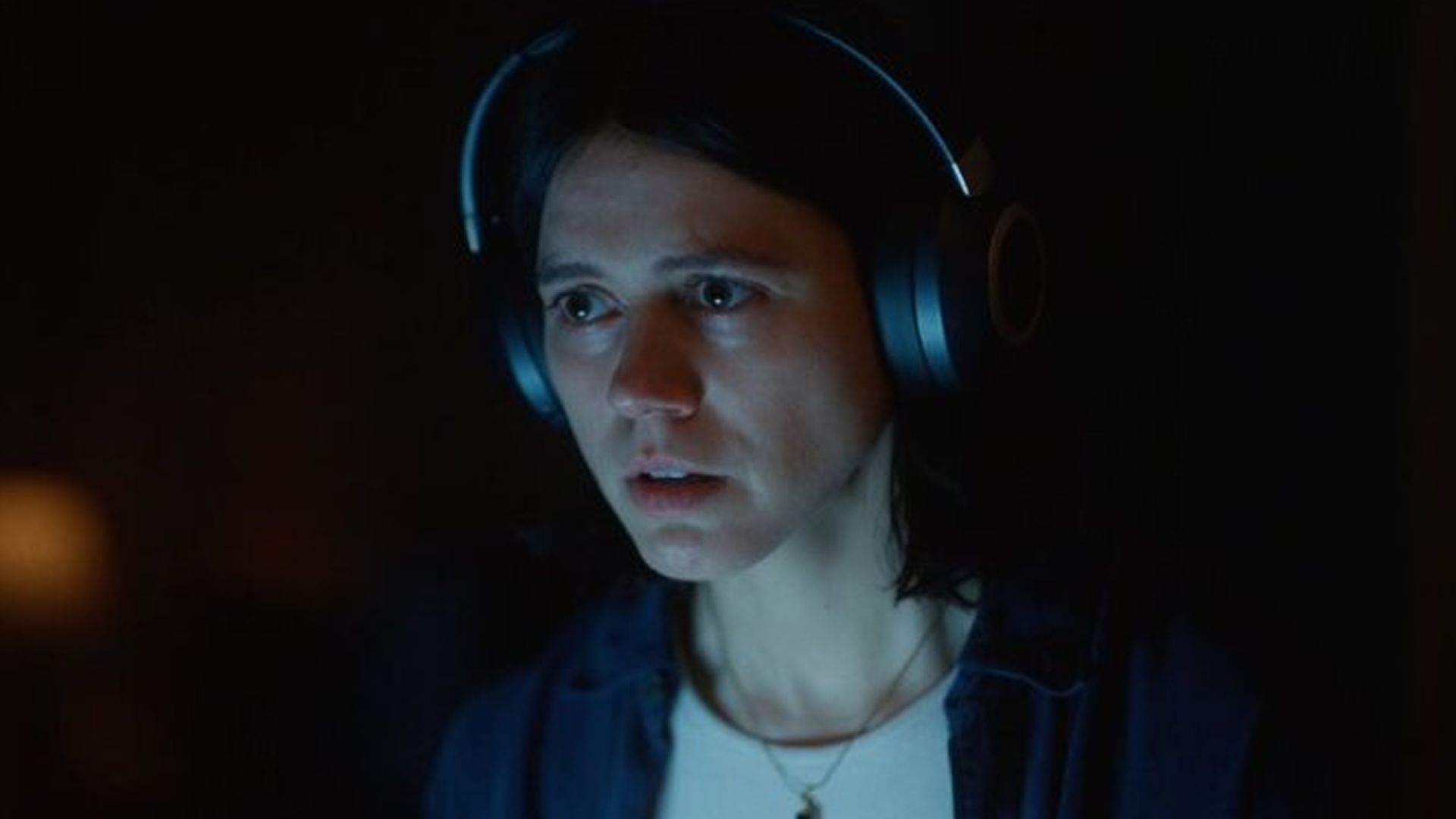
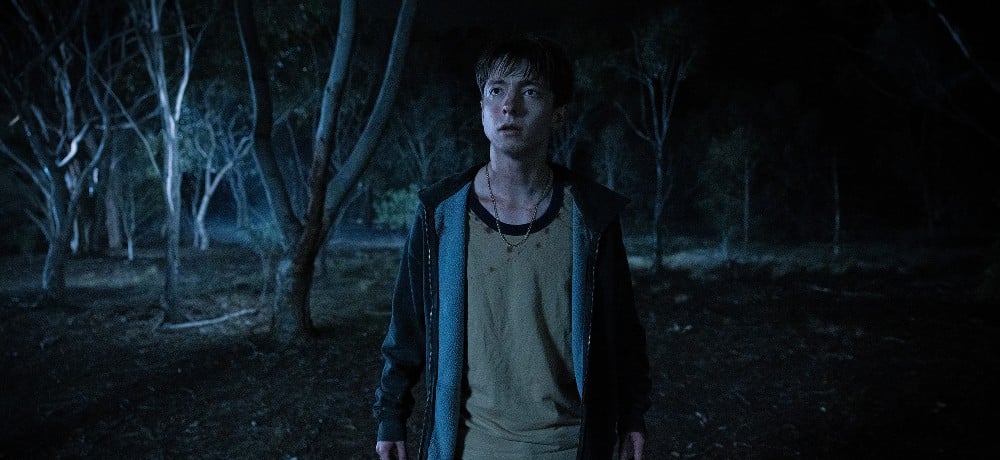
![[TRAILER] Urban Storytelling and Supernatural Horror Collide in Indie Slasher ‘Ratchet’ [TRAILER] Urban Storytelling and Supernatural Horror Collide in Indie Slasher ‘Ratchet’](https://ihorror.com/wp-content/uploads/2026/01/RAtchet-1000x600.jpg)


